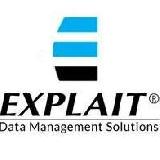Cosa dicono i nostri clienti
-

"ClouDNS è fantastico; lo uso da qualche tempo e funziona alla perfezione. Voglio davvero ringraziarvi per la vostra fantastica soluzione per i servizi DNS".
Helinton Dias
@ CloudExperts Consultoria
-

"Amazing support, great services, and best prices."
Dion Vogliqi
Source:
-

"Utilizzo ClouDNS dal 2014 e devo dire che sono davvero fantastici. Il servizio che hanno fornito a me e ai miei clienti è stato di livello assolutamente eccellente. I loro servizi hanno un prezzo conveniente, soprattutto i piani DDoS.
Daniel Ives
CEO @ Ives Network t/a Daniel Ives
-

"I've been using ClouDNS for the last ten years and I've never had a single issue. I only log in to tweak DNS settings or renew my domain, and it’s always super easy."
Todor Tsankov
Source:
-

La collaborazione con il team di ClouDNS è stata fantastica e tutta l'esperienza è stata eccellente. Il team è attento, preparato e competente e quando si parla di Cloud DNS non posso far altro che ribadire la loro professionalità.
J. May
Marketing Chief @ Amaze Communication
-

"Fantastic customer service always! New customer with this company and I can't believe how well you are treated. Hard to find a great company like this one which provides such a great service and products."
Mel
Source:
-

“Servizio eccellente. Utilizzo ClouDNS dal 2015 per i domini personali. Nel 2018 ho spostato anche i domini dell'azienda in cui lavoro e da quella data utilizzo solo i servizi ClouDNS. L'esperienza è stata fantastica!"
Stanislav Filavtev
-

"Even during the trail period and free service their customer service is top tier. I've used other premium services but very few of them can match the quality with ClouDNS. "
Shouvik Pal
Source:
-

"Knowledgeable and friendly Their tech support is always friendly and knowledgeable. I have never had any issue with downtime."
Boe VPN
Source:
-

"I haven't had any issue in 10 years and the support service is amazingly fast!"
JORGE B
Source:
-

"Grazie per l'opportunità di effettuare pagamenti in Bitcoin. È molto importante per i clienti ucraini, ora che il sistema bancario dell'Ucraina è compromesso".
Mikhail Chutowski
-

"ClouDNS fornisce i migliori servizi DNS della categoria. Prima di ClouDNS ospitavamo e gestivamo noi stessi i nostri server DNS, cosa che non era parte del nostro business; quando abbiamo confrontato le alternative abbiamo subito capito che ClouDNS era la soluzione giusta per noi..."
James Aker
President at Explait @ EXPLAIT, LLC
-

"Prompt efficient service every time! Very responsive and reliable company! Thank you!!!"
Salomé Barao
Source:
-

"I have been using ClouDNS for over a year now, and I couldn't be more satisfied with their services. From the start, their platform has been user-friendly and intuitive, making the process of registering and managing domains straightforward and hassle-free."
Răzvan Birișan
Source:
-

"Grazie per il fantastico lavoro!
Uso la versione gratuita del vostro DNS da 4 anni e c'è stato zero downtime...Iskren Slavov
Founder/Full Stack Developer @ Wish Development Ltd
-

"The best DNS hosting on the GeoDNS Start tariff significantly accelerated and increased the availability of the resource"
Molepool.
Source:
-

"Come agenzia web offriamo ai nostri clienti un hosting condiviso e vogliamo garantire loro che, anche se il nostro server dovesse avere dei problemi, i loro servizi continueranno a funzionare. Ecco perché ci siamo rivolti a ClouDNS".
Grigor Yosifov
CEO @ Forci Web Consulting Ltd
-

“Il vostro servizio clienti è realmente eccellente; continuate così!”.
Sami Sälö
Chairman of the Board @ Salskea Oy
-

"DNS Ninjas. Real People. Real Help. If you're looking for a DNS provider that actually talks to you like a human and not a ticket-bot, ClouDNS is the real deal."
Bandit
Source:
-

Sono davvero soddisfatto della vostra azienda. Siete davvero il MIGLIOR fornitore di DNS presente su Internet. L'assistenza clienti, i prezzi e le funzionalità sono di livello eccellente.
Christopher Nofal
Manager @ DreamLab LLC
-

"I wrote to their live chat support about a phishing website that was active, they took it down in 5 minutes! They care about security and their network reputation."
Brad B.
Source:
4.7 out of 5 stars on Trustpilot based on over 130 recensioni
Frustrati dalla mancanza di assistenza e dalle competenze insufficienti di GoDaddy, abbiamo cercato fornitori DNS alternativi e ci siamo rivolti a ClouDNS. Non potevamo essere più felici..."
Phillip McMahon